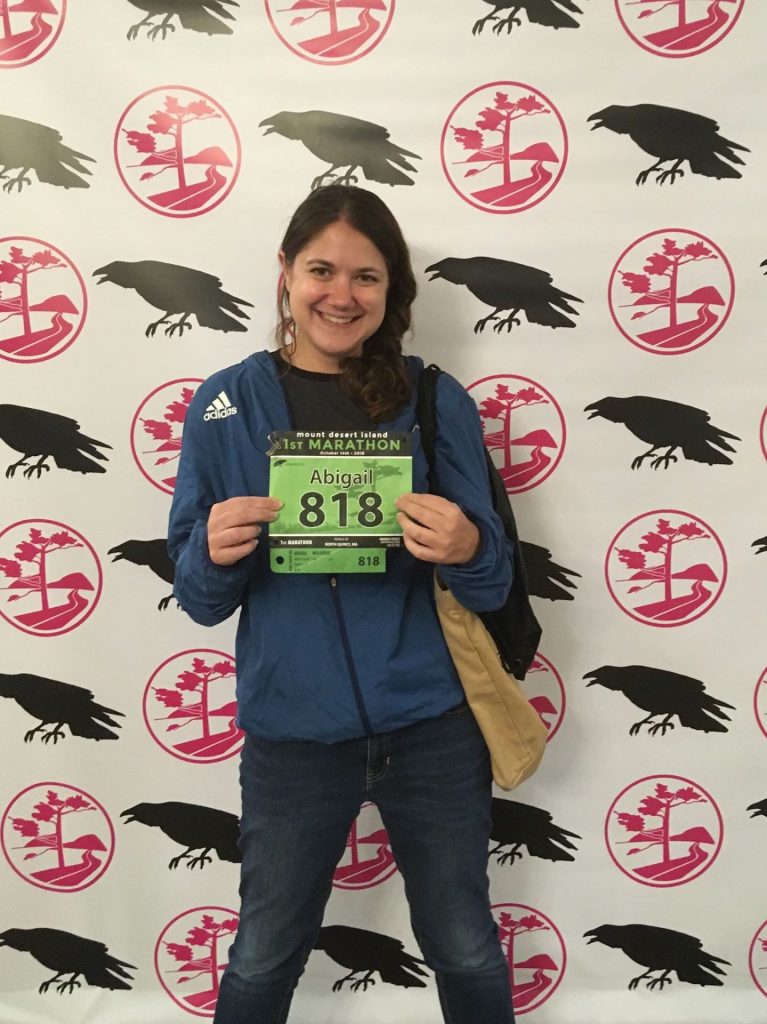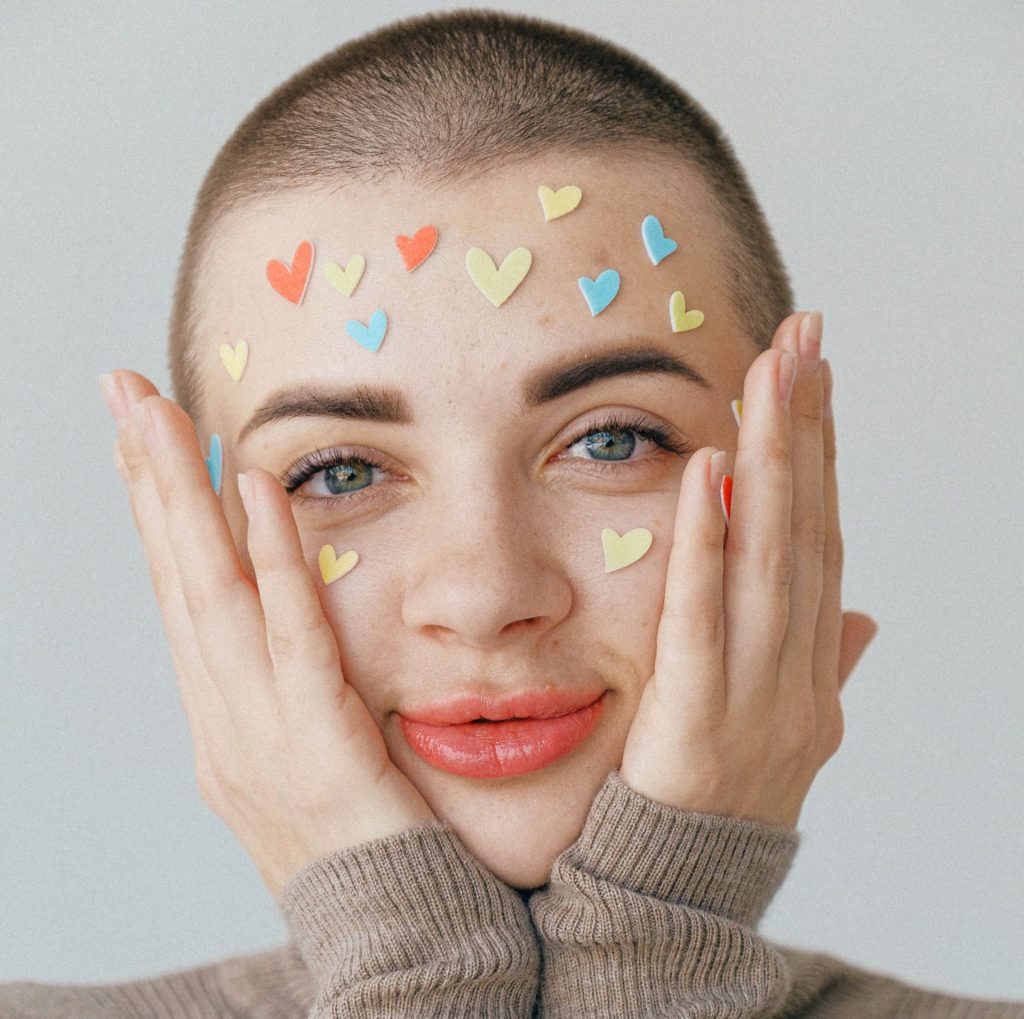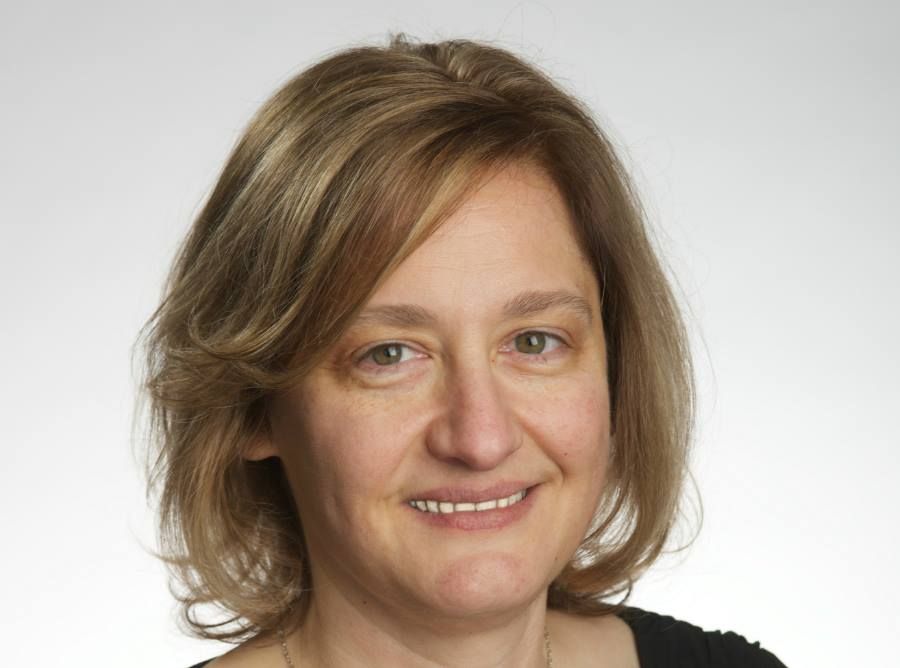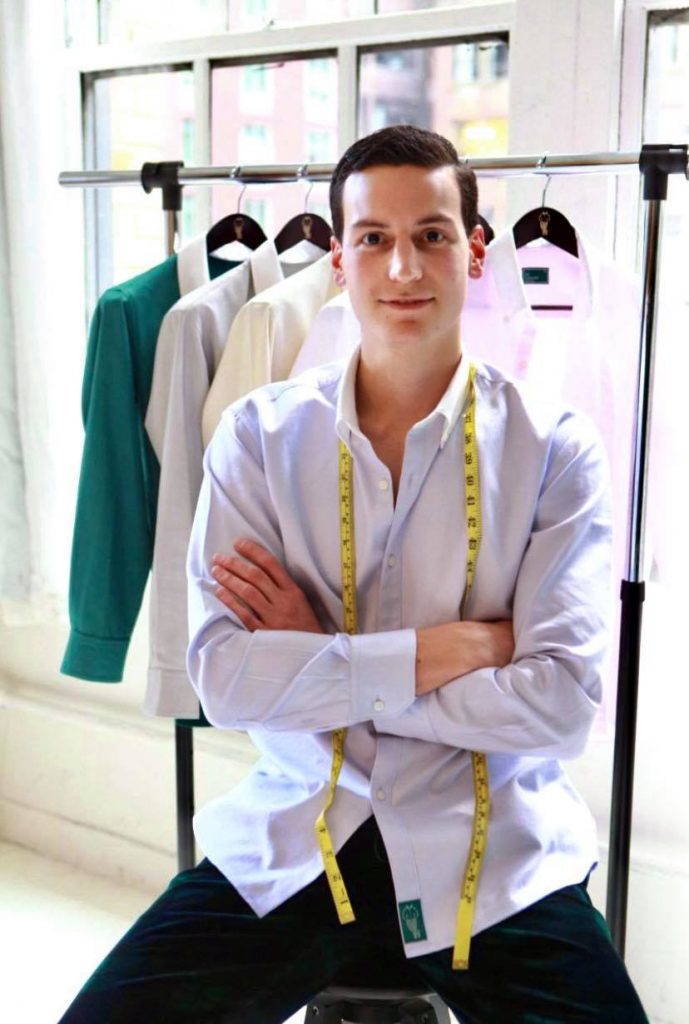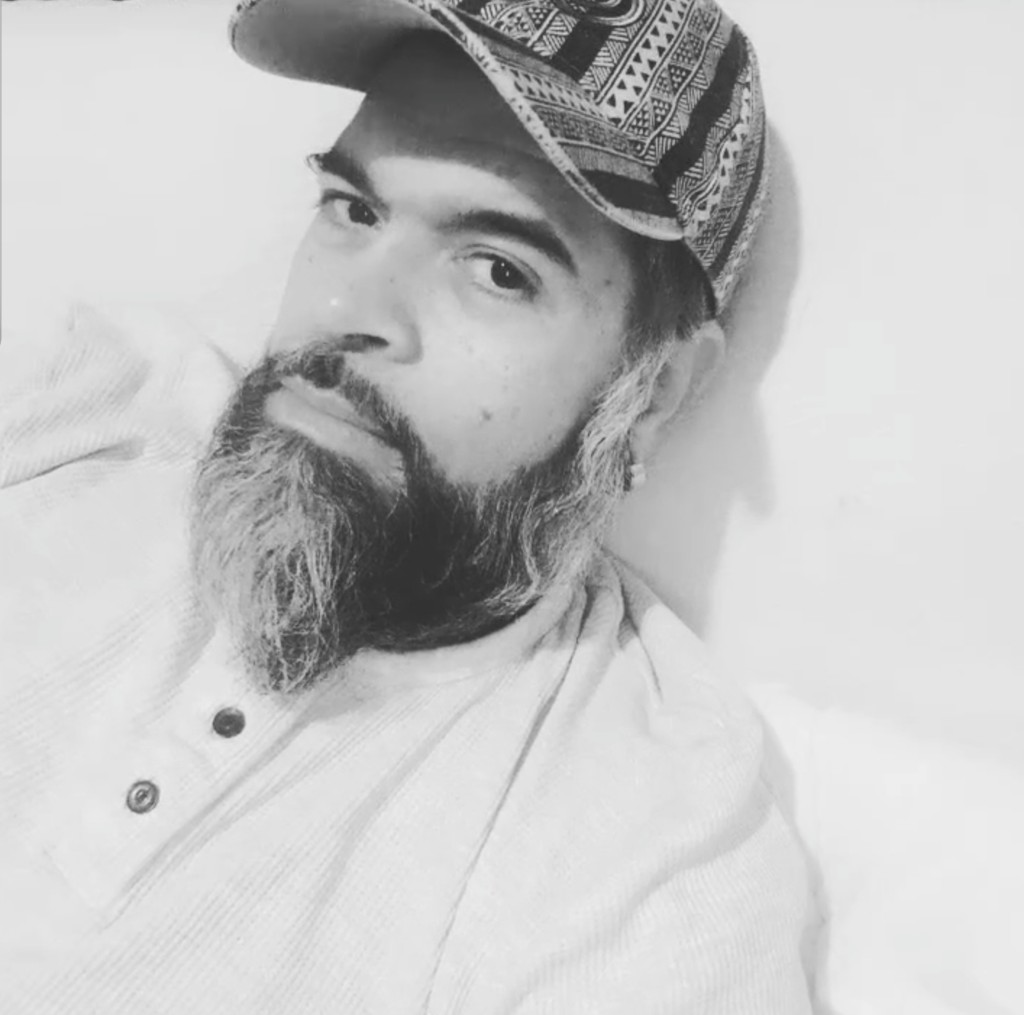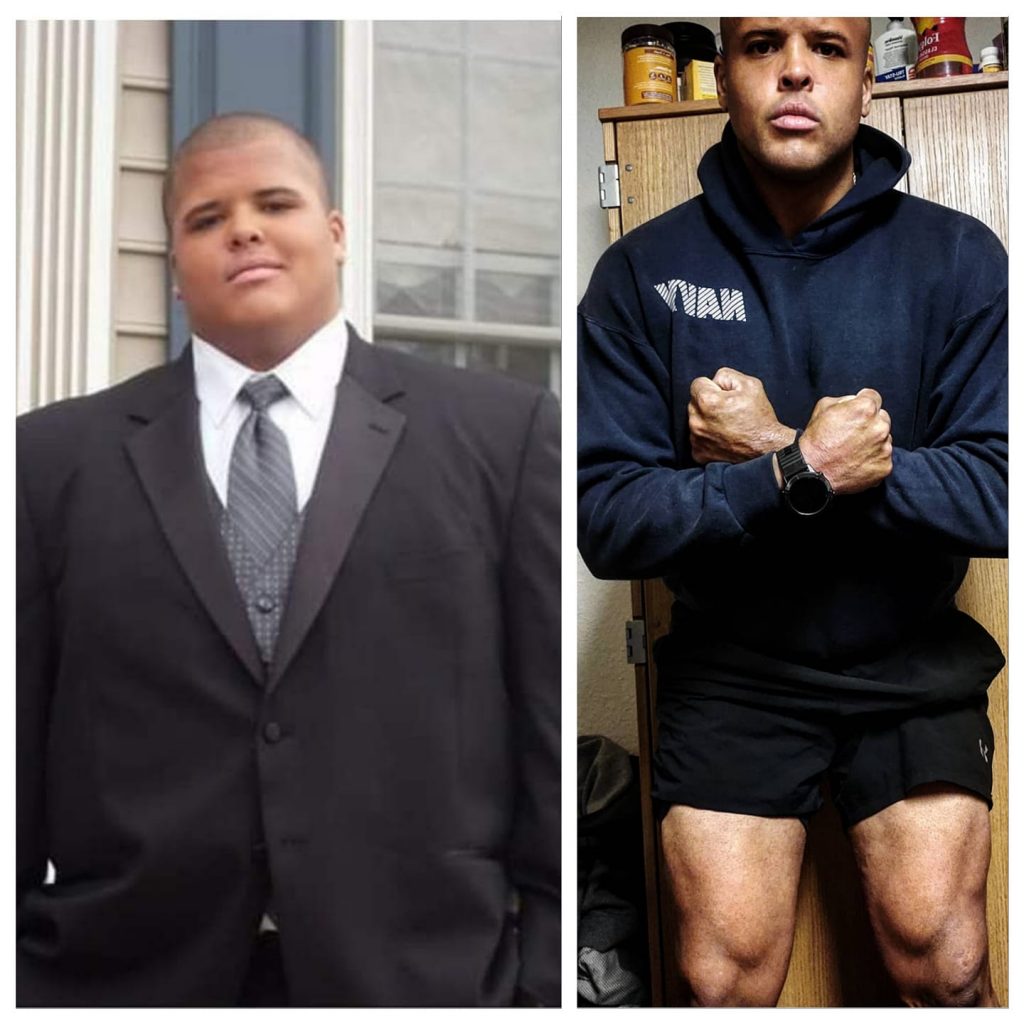Abigail Louise endured childhood trauma in a school setting but then faced her fears and ended up working at a school. This non-runner also found herself killing it in marathons. Here, she tells her story.
TAMAR: Hi, everybody, it’s Tamar. And it is a brand-new year and I have a brand new, awesome person to speak to. I have Abigail with me. And she’s going to share a little bit about her story and what inspired her, what’s been her impetus to kind of go in her career trajectory and things that have affected her in her life and what she’s doing to take care and take charge of herself. And thank you so much for coming.
ABIGAIL LOUISE: Thank you for having me.
TAMAR: Yeah, I would love for you to introduce yourself. Let us know where you’re based, what you do and what you’re up to.
ABIGAIL LOUISE: Sure. I’m a special education teacher in Boston. I’m working at a K-7 school. I’m mostly working with middle school students. I recently went to school to be an art therapist; a mental health counselor. I got my master’s degree in that and working in that field for a little less than a year. I graduated from my master’s in 2008, which was not a time in the economy when people were really investing in things like art therapy; which created a very toxic work environment, where a lot of VC agencies and nonprofits were always looking for jobs; where I was getting jobs, telling me to care less about the clients and more about your work; which was not what I want. So, I took some time off from that, and really tried everything for a while. I worked in retail for a while. I worked as a bartender for a number of years, I worked in an agency. They’re sort of fun jobs. But I really wanted to be in an interview where I felt like I was giving back, which I can because of experiences I had in my childhood and people really helped me and supported me. I felt passionate, I wanted a career where I can give back to others. And so, I started working part time as a teacher at the elementary school in my hometown. My Mom knew someone who knew someone who were looking for somebody and just fell in love working in this school environment. Unlike working in healthcare at that time, I found that working in a school allowed me to really form relationships with the students and the families with the community. I was able to be with students for like 20 hours a week instead just an hour, and really just love teaching. And in hindsight, it was obviously good for me because growing up, nobody ever believed me. I was bullied a lot in elementary school, really targeted to the point where I had to get out of the school environment because it was peaceful. In my mind, growing up, teachers were not people that help others. Teachers were just instructors who just have to supervise. Yeah, a loving, caring environment that helps as I have said and I have been working here now.
TAMAR: Cool. Awesome. That’s amazing. One of the things that you talked about; you didn’t find the teachers nurturing and supportive in your personal experience. I had the same thing. I actually was bullied very, very horribly. And I did not feel that the adults in my life and the people who had the authority over the children were advocates. Just curious, from your perspective, do you see that there has been a generational shift in terms of how that’s being handled in today’s day and age across the spectrum and in the educational environments that you’re in?
ABIGAIL LOUISE: I don’t know. And I can only speak on the school that I’ve worked with. Interestingly, I had to leave the school that I was hanging out in the fourth grade. And so, going back there and just find it had been turned into this very lovely community from where I was with students and was often being bullied. Now, you know, 20, 30 years later as a school environment, students were raised as part of the school community, including encouraged to pursue unique things that were sort of caused by the bullying when I was a student there. So, I do think that overall, there has been a paradigm shift. It’s just that sort of society that sort of embraces differences more. I have noticed that sort of high profile, raising awareness of the real detrimental effects of bullying. I don’t know what schools have become wild today. They’re not just where students can learn. Here, you feel the support for the student or child.
TAMAR: Right. Right. Do you feel that the environment in the school lends itself to a lot more of a supportive environment? From your perspective, beyond the classroom? I mean, I don’t really know what kind of things you could see as a teacher. But I assume the schools in themselves have policies: anti-online bullying, anti-cyberbullying type of policies and procedures that are followed? How is that, just curious?
ABIGAIL LOUISE: Yeah, I know bullying is definitely frowned upon. In fighting what is right, social media has I think its learning curve over the past 4 or 5 years as it has become more of an issue. I know the school I work does take bullying both in and out of the school environment very seriously. High school students have been suspended for online bullying. We also monitor students very well. It’s getting hard to be bullied during the school day because there’s just so much supervision. Students would have to be very, very sneaky about what they were doing on social media these days, and I think a lot of schools have started to realize that what students do outside of the school building is also their responsibility.
TAMAR: Right.
ABIGAIL LOUISE: But I think that is the gray area and in a lot of places. And I’ve had discussions with friends, teachers of different schools where they don’t realize what happened in the schools and in the homes. So, I think that’s a district by district information as you’re trying to figure out how that is playing a role.
TAMAR: Well, that’s good. I’m really happy to hear that because we’re definitely around the same age. And that was a huge challenge. I was also a really early adopter on the online world. And I mean, literally, my friends were still going out. And you know, my Saturday nights were consumed with kind of communicating with people online that were usually 10 to 20 years, my senior, if not older. And fortunately, cyberbullying was not much of an issue then. But at the same time, there was never really an environment that was safe for me. I never really found that socially with my friends. I didn’t even feel like I was the person who could be accepted within my social sphere. So that was my outlet. And it was hard. There were definitely times where I’ve been challenged for my identity. For who I was, hard for being a teenage girl at that point, it was so mostly dominated male environment, to prove that I’m who I am. I mean, sometimes people were like, “Yeah, prove it. Send me a picture. Send me nudes.” No, no nudes, but not sure why I just didn’t comply with those. So, I’m going to ask you something that I don’t know how much detail you’re going to go into. But you talked about how you were. You had definitely been a victim of bullying and you talked about how you had suffered from some trauma growing up. If you want to talk about that and how you were able to bear through, we want to hear your testimony to your resilience. Do you however feel comfortable elaborating on this? Do you want to share a little bit more about that?
ABIGAIL LOUISE: Like I said, I was pretty severely bullied in elementary school. Before social media was a thing. I do not think I would have lived through middle school in high school if we have things like Snapchat and Instagram. A lot of kids kept calling me names, making fun of how I loved seeing how family members love, really like a gang. I was in a very affluent town as part of a middle-class family. Even though I had enough money I was gonna ask for it, sometimes I would wear clothing which other students were not wearing in my town. I think part of it is that I was diagnosed with an anxiety disorder when I was 10. I was diagnosed with OCD which is not something that people knew about in like 29 years. So now I think it is a disorder that is very much in public awareness. There have been a lot of movies, a lot of fluff, a lot of emails. But back in the 90s, kids thought I was weird. And I was kind of weird like that. And so, created for me that sort of a wall as girls were worried I had this disorder, and nobody knew about it, and doctors didn’t know what it was back then. And you know, it was hard for all girls, and then trying to sort of navigate through elementary school and middle school, while being bullied just created a lot of turmoil. I’m lucky that I have a phenomenal family who is very supportive through all of it. I’m lucky that I did have close friends. I have a couple of close friends at school. But I also had a lot of close friends from my camp. I have a lot of fear and it was really an outlet for me. I had close friends in my theater group. So, I was able to find sort of niches. I hate it when people take care of me, which is why I found those outlets. Theater and art were really a big part of myself growing up and still is to some degree today. Just as I can find a community or I can feel I belong where I could go to escape the everyday world.
TAMAR: Yeah, that’s inspiring. I mean, to see that you’re able to overcome, to find your place in the world and use it as a creative outlet. So that’s great. So, we connected in a different realm. And I would love to kind of elaborate on that. I know that in this particular podcast, we talked about self-care in a number of different facets. And fitness is one where I think a lot of people have found themselves in embarking on a journey that ultimately is super helpful. I haven’t actually spoken to anybody on it, but there’s this hole on https://www.reddit.com. There’s a whole subreddit called Exercise Out of Depression. So, a lot of people find that exercise is a great place. And I mean, coming in, we’re in 2020 now, it’s a great outlet and a great avenue to boost ourselves both internally our self- esteem and externally because of the output that comes from there. So, talk to me a little bit about that part of you.
ABIGAIL LOUISE: So, I started running about 5 or 6 years ago. Growing up, I hated running like I would walk them on a gym class, and it would take just half an hour. I was adamantly anti running. And then about 5 or 6 years ago, I was kind of looking to maybe get into it. I have a lot of friends who are starting to do 5 Ks. I also was at a time traveling a lot. I was in grad school and long-distance relationship. And so, I was like, “Oh, if I could be a runner, I could sort of exercise anywhere. My extra time was with Yoga and Zumba classes and spin classes.” We were kind of connecting through video. So, running seems like a cool thing to do. But like I’m not a runner, I could never do it. And then one of my really close friends who is also a teacher lost a student to cancer. As a way of coping with that, some of her colleagues organized a 5 K to raise money for pediatric cancer research. And she said, “Hey, will you run this 5K?” And I said, “Ha, ha, ha, I’m not a runner.” Who goes, “Will you walk a 5 K?” And I was “Not one for 5 K but I will run it. I’m just not a runner.” So I downloaded the 5 K App and did it. I thought that’s the only one time. I will run the 5 K, I will do it and never run again. And then it did not go as planned. I finished in respectable time. But I ended up walking fast a lot, of walking into rolls. It was really cool. And I’ve been training all summer. I finished the race and sort of feeling like, “Hhmm, that was fun, but I bet I could do it better.” And so, I signed up for a second 5 K. And that time I was prepared for the weather and I ran the whole thing that had beginning walking breaks. And I finished with this incredible exhilaration. I was like, “Huh, let’s keep doing those. That was fun.” So yeah, the time that was like, I’m justified. I do a few miles on the weekends. I’m just a 5 K runner. And then I gradually escalated to 5 a miler. And I was like, “Okay, 5 miler. That’s cool.” Like, I can run 5 miles, no desire to ever do any more. I had a couple of friends who are also runners, they did more. Then I moved to Boston. Doesn’t mean New York City. During all these, I moved to Austin, and continued to do some 5 Ks. And then I joined November Project up in Boston, which is a free fitness community that invests in new cities around the world. And during November Project, I met a lot of just really fascinating, amazing athletes of all types, triathletes, marathoners, ultra- marathoners. And a friend, remembered one day as we were doing a really challenging workout said, “Oh, have you ever considered a marathon?” And I was like, “Nope, that’s not for me.” They’re like, “No, you can do this.” But your marathon should not have like training for it. And so, I kind of started thinking like, “Hmm, that’s the right race came along. Maybe I would do it. And then I found out that there was a marathon up in Mount Desert Island in Maine, which is where I happened to be on vacation when I got my OCD diagnosis. And so, it has sort of a very meaningful place in my family and in my life. And I was like, “Fine, I’m going to do a marathon in Memphis Island, and I’m going to conquer this area of the country that has a very negative stigma to me.” And so, I think running really started as a hobby, you didn’t really start self-care. But I sort of use it to conquer new goals. I’ve never run a half marathon. Then, I’ve run a marathon, I’m about to start training for my second marathon. It has really become very self- meditative for me. I’m not a speed runner. I really embrace running like 11 to 12 minute-miles. So, I could zone out, enjoy the scenery and meditate as a way to conquer stress. I love running just after stressful work week. I love waking up at like six o’clock on a Saturday and putting my running shoes on. But I think it’s also a way for me to just meet challenges. And for me to sort of feel like I’m strong, feel like I’m healthy. Words that I would not use to describe myself when I was 11 years old. I now see that as part of my identity, more. And so yeah, running has really sort of become self-care. And I’m now friends with my old gym teacher from elementary school, because we’ve worked together for a while when I was teaching, and she thinks it’s hilarious that this little chubby girl who refused to stay in gym class is now getting excited about marathon training. It really has been pretty amazing.
TAMAR: Wow, yeah. So, I kind of see myself with you. I’m a 5 K right now. And that’s where I haven’t figured out whether I’m going to take the plunge into a 5 miler or a half for marathon. It’s definitely something I see on the horizon. It’s just a matter of I guess there’s a big like valley I have to jump over first in order to get there. But that’s amazing. And yeah, my trajectory has also been the couch to 5 K program and then pushing, pushing and pushing and it’s intimidating. But I see the element of the meditative quality that you’re talking about. For you, I guess that’s your runner’s high. Would that be fair to say?
ABIGAIL LOUSE: Absolutely, yeah.
TAMAR: I think I’ve only had that one so far. So that’s why I’m 5 K, but if I go a little further, maybe I’ll be able to explain that exhilaration that runners describe because I can’t really identify with it right now. So I’m just curious for you, I mean, I guess you have a lot of little areas of self-care that probably is your big focus, do you have any other things that you kind of used to know, that embody who you are to be your authentic self and to focus on? That element of self-care?
ABIGAIL LOUISE: Yeah, I mean, running is a big one. I like art and not to sound like a master artist, but journaling, coloring, even trying to find some aspects to be creative are really the two big ones. I think connecting with friends is really important for me also. There are little things too, like you know, monthly things for us and things like that. I have my art and having running in my life have really definitely been sort of instrumental to that, in addition to family.
TAMAR: And in terms of your running, just curious, what’s your regimen look like? On a weekly basis? How many miles are you running daily, weekly, monthly? What does that look like for you?
ABIGAIL LOUISE: Yeah. It definitely depends. Varies per month. When I’m pulling for a race, I’ll be running 2 or 3 miles a day, 4 or 5 days a week, with longer runs on the weekends. Back in December, I didn’t really run at all because I was working on a theater production. And I do sort of try to go back and forth, like my arts’ creative mode. And my running mode is hard to do, both of those things, while also having a full- time job. And December, I just made the point that this was going to be a creative month, and I was going to focus all of my energy on the theater production, and I was not going to worry about running. So, it varies. I mostly like to work out about 5 or 6 days a week, 2 or 3 of those days are usually running. But I also like to do yoga. I like to do the occasional Zumba class, or just go on the elliptical at the gym to kind of mix it up a little bit. But I try to be active at least 5 or 6 days a week.
TAMAR: Cool. And you said earlier that you like to put on your sneakers at six in the morning. Is that usually your person?
ABIGAIL LOUISE: I’m a morning person. And I think a lot of us with a tight schedule. I wake up at 5:30 to get to work on time. So, if I sleep until 6 or 6:30 on a Saturday, like I’m ready to go. Alright, not my fiancé’s favorite thing about me. He really enjoys sleeping and being lazy on the weekends, like 99% of the world does. A morning person, I like to just get up and go,
TAMAR: Right. It’s quieter, it’s definitely a lot nicer. The environment is definitely a lot less intense than it gets during the evenings, especially for you. You’re like unwinding from your classes. You don’t want to have to do something after that.
ABIGAIL LOUISE: The sidewalks are less crowded. You don’t have to dodge around as many strollers and puppies and stuff. It’s just a lot easier to just throw it out.
TAMAR: Right. In Boston proper, you definitely have that problem quite a lot. Yeah. Cool. I usually try to get a little bit of a wrap up for, I guess your perspective, just in looking back and looking at your life in a tour right now. If you could give your earlier self any type of advice from where you stand today, what would you tell her?
ABIGAIL LOUISE: I think just to kind of believe that it would work out and just to have faith that there are going to be some really hard years but that like everything would be okay at the end.
TAMAR: Right. And you take that into this year as well. I think that’s the takeaway, not just for yourself but for everybody listening. We have to know it’s a loaded answer. A loaded question, and a loaded answer. I think everybody can benefit from that specific piece of advice. Yeah, so awesome. Thank you so much for your time and for sharing yourself and for making yourself slightly vulnerable and maybe even a little bit uncomfortable. But I mean, for me personally, I think this is great. And I think there’s a lot of stuff to see how your life has improved and how I think the education system has improved and making sure that children are cared for and are really helping become their authentic selves. And it’s really important. So, thank you again Abigail and happy New Year.
ABIGAIL LOUISE: Yeah. Happy New Year.
TAMAR: All right. I appreciate it.
Podcast: Play in new window | Download (Duration: 23:39 — 30.5MB)
Subscribe: RSS

